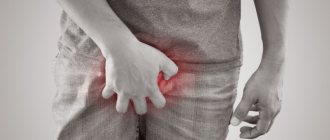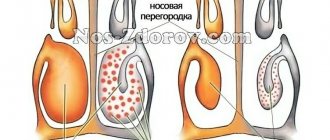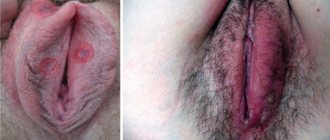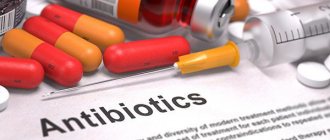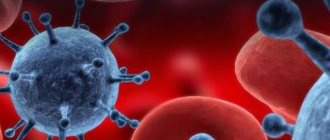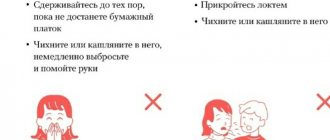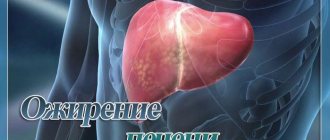Signs of weakened and reduced immunity
Weak immunity has symptoms common to everyone - men, women, the elderly and even infants. Signs that reveal a reduced level of body defense are the following:
- Feeling irritated for no reason;
- Prostration;
- Headache and feeling of weakness;
- Drowsiness and weakness;
- Dull skin, brittle nails and hair;
- Increased fatigue.
Weakened immunity in an adult has symptoms - criteria:
- Frequent diseases of ARVI and influenza. In a year, a person can normally catch a cold up to 4 times. If these numbers reach 5, 6 or more, this indicates reduced immunity. In case of incidence more than 10 times a year, it is necessary to consult an immunologist;
- A feeling of malaise that accompanies a person all day. Rest does not relieve fatigue, drowsiness prevents you from working;
- Instability in emotional state. People with a weakened immune status are depressed, their attention is reduced, and irritability is increased.
Weak immunity symptoms.
The main symptoms of weak immunity are lethargy, fatigue, drowsiness, frequent colds, exacerbation of chronic diseases, irritability.
Try to analyze your health over the past six months.
If you have caught a cold several times over these six months, especially if you have been sick for two weeks in a row, if you often feel unwell, get tired quickly, and begin to notice drowsiness, then these are clear signs of weak immunity.
Draw conclusions: you have low immunity . Your body is simply unable to fight infections due to weak immunity.
Causes of decreased immunity
Many factors can trigger the weakening of the body’s protective properties - both internal and external. The first includes disruption of the functioning of human organs and systems. These can be congenital or acquired pathologies, such as:
- Blood diseases - leukemia or lymphoma;
- Liver damage;
- Intestinal absorption disorder;
- Kidney disorders;
- Chronic infections;
- Immunodeficiency conditions, including HIV;
- Tumors;
- Injuries;
- Parasitic infestations.
This group also includes some physiological conditions - adolescence, menopause, and pregnancy in women. In addition, the causes of weakened immunity may be associated with certain medical procedures - long-term use of antibiotics and aggressive chemotherapy. External factors include:
- Poor nutrition;
- Hypo- and avitaminosis;
- Physical inactivity;
- Stress combined with lack of sleep;
- Adverse habits such as smoking, drug addiction, alcoholism;
- Staying for a long time in an area of increased background radiation;
- Intoxication with chemical compounds.
In some cases, it is not possible to understand why the problem exists. Then we are talking about idiopathic cases of the disease.
Myths about immunity
Here you immediately need to understand that immunity is indeed a very stable and complex system, so expressions like “his immunity has dropped” or “my immunity is low” are usually not true.
In fact, this is the ability to recognize and destroy billions (!!!) of foreign microorganisms or “broken” cells of one’s own body.
Immunologists say that neither microbes nor vitamin deficiency can “lower immunity.”
We talk about problems and “breakdowns” of the immune system only in cases where it is caused by serious disorders - autoimmune diseases, HIV, oncology.
A cold is a sign of weak immunity
Probably the most common myth, which is very diligently supported by manufacturers of various antiviral, often homeopathic, remedies.
Normally, an adult gets ARVI 2-3 times a year, while a child suffers from 5 to 6 times. This difference is due to the fact that in children the immune system has not yet been formed.
And it is precisely with the help of viral infections that she trains to fight the “invaders.”
Why do we get sick? Because we live in a world in which, besides us, there are also thousands of viruses that attack us every day. Some “pierce our armor”, others don’t, that’s all.
The immunity that appears after diseases caused by viruses (for example, influenza, ARVI, etc.) or after vaccination is called specific.
You can’t really influence it: you just need to get over the virus so that your body knows how to fight it.
Immunologists especially emphasize that the immune system is such that when there is a real malfunction in its functioning, truly complex bacterial complications begin (for example: frequent pneumonia, skin infections, purulent otitis and sinusitis), cancer and autoimmune diseases .
So a cold is not an indicator of a weakened immune system, but rather proof that it is working!
It is necessary to check for viruses every six months
We humans are very timid creatures and many of us, in pursuit of health, make a lot of unnecessary movements. For example, taking endless tests.
But it’s not enough to take tests; you need to be able to decipher their results and benefit from them for treatment.
Particularly popular in our country are tests for cytomegalovirus, Epstein-Barr virus, and herpes simplex virus. Doctors love to blame all their patients’ problems on them, and it’s a real pleasure to treat them!
But the US Centers for Disease Control and Prevention does not recommend diagnosing such viral infections.
Simply because it is almost impossible to find a person who would not be infected with them, but there is no real evidence of their harmful effects on health!
The same principle applies here, according to which an increasing number of doctors do not advise patients with back pain to immediately undergo an MRI.
As the head of the department of nervous diseases and neurosurgery at Sechenov University, Professor Vladimir Parfenov, explains:
Disc herniations are so common that they can be found in almost everyone, all you have to do is get an MRI. However, most people are not bothered by them .
Only a third of patients have back pain caused by a herniated disc.
But a photo with a hernia can frighten a person so much that he stops sleeping peacefully . Once a hernia is identified, there is often a fear of movement (kinesiophobia) and catastrophizing of the problem, which leads to a decrease in physical activity and a vicious circle of pain.
That's why experts now advise this.
Based on a special examination, signs of a dangerous disease are determined (fracture, tumor, inflammation, etc.).
If these signs are present, then it is necessary to urgently do an MRI or other examinations, but if they are not present, then there should be no rush to perform an MRI; in many cases, the pain will go away within 1-2 weeks.
Immunostimulants and modulators work
On the one hand, this is true. But we are not talking about widely advertised drugs, but about highly specialized drugs that are prescribed for serious illnesses and only under the supervision of a doctor .
There are two types of such drugs: some suppress the immune system, others stimulate or activate.
The former are prescribed for autoimmune diseases, after organ transplants, chemotherapy, while the latter are prescribed for a deficiency of blood cells and hepatitis.
As you can see, there are no insomnia, colds or other similar reasons on the list. Such medications carry a lot of risk and are prescribed only in cases where the potential harm from not taking them outweighs it.
What is advertised on TV and sold without prescriptions in pharmacies is the so-called bullshit. THEIR benefits have not been proven!
The hit list of such drugs:
- Anaferon
- Arbidol
- Glutoxim
- Immunal
- Imudon
- IRS 19
- Kagocel
- Oscillococcinum
- Cycloferon
- Polydoxonium
Pre- and probiotic supplements help
The production process for most probiotics, unfortunately, does not allow us to say that the benefits of taking them may differ in any way from taking any other food.
You can get the same things from food.
For example, prebiotics are mainly carbohydrates, which are found in many vegetables and fruits; buying them in pharmacies is pointless!
Moreover, research suggests that probiotics may not affect the composition of gut bacteria in adults .
There are no medications for the home medicine cabinet that could strengthen nonspecific immunity (the one that “lives in the intestines”).
It largely depends on genetics and lifestyle, and medications cannot affect it.
Moreover, immunologists believe that immunity is too “subtle” matter to get into. For example, the chief clinical pharmacologist of St. Petersburg, Alexander Hadjidis, says:
Even immunologists who deal only with this subsystem of the body admit that not everyone knows about its protective powers. What can we say about other doctors - non-specialists in this field.
Because of their dense nature, many of them prescribe drugs to patients that supposedly stimulate the immune system.
In fact, scientists do not know how our current impact on the immune system, especially its stimulation, will affect it in the future . Therefore, in my opinion, it is safer not to touch what you don’t know.
What to do
The natural question is “An adult has very weak immunity, what should I do?” The first thing you should think about is how to strengthen the body's defenses. There are many ways to boost weakened immunity. These include the use of medicines, folk remedies, physiotherapy, as well as changing your diet.
The protective system needs an appropriate lifestyle. A person who seeks to improve his reduced immune status must take a step towards a number of requirements:
- Give up bad habits - do not smoke or drink alcohol;
- Eat healthy foods that contain a large number of essential vitamins and minerals. These include vegetables and herbs, berries and nuts, fruits, dairy products, fish and much more. It is especially important to consume healthy foods during seasonal hypovitaminosis - the autumn-winter period. Water should not be neglected. Most of the body's reactions take place in this environment. If your immune status is weak, you should drink at least 3 liters of fluid per day. For convenience, you need to carry a bottle of water with you and drink it in small sips;
- Increase physical activity. Physical inactivity promotes fat deposition and reduces ventilation of the lungs, which can weaken the immune system. Physical activity is necessary for every person, especially those suffering from a decrease in the body's defense forces. The age of technology has led to people spending most of the day in a sitting position, often under air conditioning. This has a negative impact not only on the immune status, but also on the body as a whole – on its various systems. To increase the level of your protective potential, you must not deny yourself walks in the fresh air. Do not forget about breaks in work, which should be spent not sitting at the computer, but warming up. Don't neglect sports. There are so many different physical activities - swimming, running, yoga, gymnastics, aerobics, tennis, fitness, badminton, skiing, boxing. Everyone can choose something close to themselves. Regular balanced physical activity helps improve immunity, normalize metabolic processes, stabilize the musculoskeletal system and other body systems;
- Support reduced defense power with immunostimulants and vitamin-mineral complexes, as well as bifidobacteria, which have a beneficial effect on the digestive tract. This helps nutrients be absorbed better and faster;
- Follow a daily routine - get up and go to bed at a certain fixed time. You need to fall asleep before midnight. Eat regularly. Stabilize the working period and rest. Avoid under- or overeating. Reduce the stress factor;
- Temper yourself - in other words, teach your immune system to resist unfavorable environmental factors. Hardening methods include dousing with cold water, air and sun baths, contrast showers, and wiping with snow. These methods can only be used if the person is healthy. If you have an illness, you should cure it and only then begin hardening.
How to help your immune system
A healthy lifestyle is not just a popular phrase, but a whole arsenal of means available to everyone to boost immunity. The basic principles are simple and known to everyone.
Balanced diet
An important component of a strong immune system is a healthy gut. Its lymphoid apparatus and mucous membrane (about 200 sq. m of surface!) contain a huge number of immune cells.
Eliminate heavy (fatty and spicy) dishes and unnatural foods (smoked meats, canned food, etc.) from your diet. Eat more fresh vegetables and fruits. Be sure to consume fermented milk products containing beneficial bacteria. Take care of your intestinal microflora, and it will take care of you.
Products containing a complex of omega-3 fatty acids (certain types of fish, flaxseed and rapeseed oils) also strengthen the immune system.
Hardening and physical activity are excellent ways to increase immunity.
Morning jogging, exercises, fitness, yoga, visiting the pool, baths and simple hardening procedures (contrast showers, rubdowns) strengthen the body’s defense system much more reliably than pharmaceutical immunomodulators.
Quitting smoking and alcohol
Everything is clear here. These bad habits easily develop into chronic diseases and cancer. A smoker shortens his active life by an average of 10 years.
Full sleep
It has been scientifically proven that reducing sleep by 1 hour increases the risk of catching a cold virus by 3 times.
Hand hygiene
It is on the hands that germs linger in large quantities and for the longest time. Regular hand washing with soap or using wet wipes will significantly reduce contact with them, and therefore the load on the immune system.
Diagnostics
The diagnosis of the disease is carried out by a doctor-immunologist. To do this, he can palpate to determine the condition of the lymph nodes and prescribe laboratory tests. Among them, the following are important:
- General and biochemical blood test, in which the determining factor is the leukocyte formula;
- An immunogram based on the detection of circulating Ig.
Comparing the normal values of immunocompetent cells with those present in patients allows the doctor to make a diagnosis. After studying the medical history, the doctor takes into account the individual characteristics of the patient and draws up a treatment plan.
Keep in mind
Reduced immunity can be inherited. A certain percentage of people have congenital forms of immunodeficiency. Their body produces little class A immunoglobulins, which are normally found in large quantities on the mucous membranes of the nose and mouth, in the secretions of the upper respiratory tract, and in the intestinal tract. Immunoglobulin A is the first barrier to infection that enters our body from the environment. People with this deficiency often get sick.
Article on the topic
In facts and figures: only 10% of people can boast of powerful immunity
But for most people, a decrease in immunity is a temporary, reversible phenomenon; this can be avoided in the simplest way - with the right lifestyle. The immune system is undermined by stress, lack of sleep, poor environment, and poor nutrition.
Treatment and strengthening with medication
The main line of combat against a low immune status is drug exposure. Immunomodulators and immunostimulants are an important pharmacological element in this matter. Depending on the cause of the decreased defenses of the body, the appropriate powerful treatment is prescribed - “Tymolin” for dysfunction of the thymus gland, “Polyoxidonium” or “Licopid”.
Recommending medications is the prerogative of the doctor. Uncontrolled prescription of medications and self-medication can only worsen the patient’s condition. Herbal preparations that have the property of stimulating the immune system are often used. These include extracts of licorice and echinacea, lemongrass, eleutherococcus, and ginseng.
Considerable benefits come from consuming vitamin and mineral complexes. A large role is given to group B, in particular B5, as well as A, C, D, F. Zinc, magnesium, iron, manganese, selenium and iodine are important. The complexes are prescribed by the doctor. Their excess can negatively affect the patient’s health, so “taking vitamins” on your own is not the best idea.
It is also impossible to increase immunity. Immunomodulators and vitamin therapy are useless
The myth that immunity can be strengthened is one of the most popular. Most of the parents who come to see me with their children are directly eager to strengthen their immunity. Unfortunately (or fortunately), there is not a single drug that can strengthen the immune system or affect the entire immune system. If a person was born with a healthy immune system (we talked about this at the beginning), then it already works normally and does not need to be strengthened. Interfering with its work is not only useless, but may also be unsafe. Immunomodulators are now popular. This is such a “magic” group of drugs that is completely absent from European and American protocols for the treatment of respiratory infections in children. But it is worth knowing that, at best, they will not affect the course of an acute respiratory viral infection. And at worst, they can even have a negative effect, especially with uncontrolled long-term use, because the immune system has its own reserve. Excessive indiscriminate stimulation can simply deplete it. Immunomodulators are not able to affect either the duration or the frequency of infectious episodes. In order for the child to recover faster, he needs to create favorable conditions. Often parents look for an easier way and choose a “magic” pill, abusing medications in pursuit of a quick recovery. But when a child is sick with ARVI, it is much more important not to forget to give him water (including at night, and not just during the day), ventilate and moisten the room so that the child’s mucous membranes are constantly moisturized. This applies to adults too.
There is also no point in taking multivitamins if a person does not have some kind of chronic pathology and does not experience intense physical activity, as is the case with professional athletes (they need more vitamins and microelements). If we lead a normal lifestyle, our body needs vitamins in very small quantities, and with a varied diet, what we get from food is enough. The exception is vitamin D3, which really needs to be taken by both children and adults. A deficiency of this vitamin can lead not only to rickets, it also affects the condition of the skin, nails, and immunological reactivity.
So, despite the fact that immunity cannot be “killed” or strengthened, it is still possible to improve the body’s immune reactivity. Our lifestyle influences our susceptibility to viral infections and the severity of their course. For example, if a person is chronically sleep-deprived—sleeping 4-6 hours a day—his body is constantly under stress and tension, especially if there are some unresolved matters or a traumatic situation. This can lead to slight immunosuppression, which will make this person more susceptible to viral infections than if he had a stable nervous system, adequate sleep and nutrition, and physical activity.
Sex also increases immune reactivity. Like any physical activity for, say, 30 minutes (essentially cardio exercise), this is a workout for the cardiovascular and respiratory systems. At the same time, this is hardening, because the body is naked. When kissing, we exchange a large number of immune defense factors contained in saliva. Plus positive emotions, the release of the hormone of joy - endorphin.
Treatment with folk remedies
An addition to the main therapy recommended by a doctor is alternative medicine. The problem of reduced immunity plagues not only modern society, but also people of past centuries. They did not have the range of pharmacological agents that modern people have now. The treatment was homemade folk recipes that were passed down from generation to generation.
Now, in the age of evidence-based medicine, such therapy cannot be used as the only method. But in addition to the recommended treatment, folk remedies can have a beneficial effect. The most common recipes are the following:
- Rosehip infusion, which contains many useful microelements. To prepare, you need 1 tablespoon of chopped berries, which is poured with 2 cups of boiling water. This mixture is kept in a water bath for 15 minutes, after which it is allowed to brew for half an hour. The decoction can be drunk 2 times a day before meals, half a glass. Repeat for 4 weeks;
- Mix 100 grams of rose hips and 2 lemons, which are crushed unpeeled. Add 5 tablespoons of raspberry leaves and honey to them. The resulting mixture is poured with 1 liter of water, boiled and kept on low heat for 15 - 20 minutes. The resulting broth is filtered and infused for 2 - 3 hours. The infusion is taken 2 times a day;
- It is necessary to fry the flax seeds and then grind them until a powder is formed. It is taken 2 times a day - in the morning and in the evening.
If I get ARVI 4 times a year, do I have a pathology of the immune system?
The immune system goes through different stages of formation. For example, before the age of 7, it actively matures, and it is considered normal for preschool children to get sick up to 12-15 times a year. The frequency of infectious episodes in adults is influenced not only by the immune system, but also by various external factors. Therefore, it cannot be said that getting ARVI 5 times a year is normal, but 6 times is already too much and, probably, the reason is a pathology of the immune system. What matters is not the frequency of infectious episodes, but the severity of their course. Here it is important to evaluate how a person tolerates each infectious episode, whether hospitalization and the use of antibiotics were required, whether there were complications, etc. But it’s normal to get ARVI every year.
However, sometimes adults come to see me who, not in childhood, but only now, after 30 years, have for the first time manifested a congenital defect of the immune system. Primary immunodeficiency is a huge group of diseases that are based on some kind of genetic defect. To date, more than 400 genetic defects have been described that can lead to primary immunodeficiency.
Each variant of immunodeficiency, of course, has its own manifestations. But the classic manifestation is an increased frequency of infectious episodes. If a patient comes in who suffers an infectious episode with complications, often requires hospitalization and antibiotics, his infections tend to become chronic - of course, he should be examined for primary immunodeficiency.
But a disease of the immune system can also begin with non-infectious manifestations. The first signs may be: a delay in the rate of physical development, enlargement of the lymph nodes, spleen and liver, some appearance features, complications after vaccination, especially live vaccines, cancer (for example, lymphoma). It happens that a patient developed normally until the age of 15, did not get sick, and then he develops an oncological disease. The reason may be primary immunodeficiency.
Interestingly, primary immunodeficiency was previously considered a very rare disease. Just 2-3 years ago, the incidence of primary immunodeficiency was estimated as 1 case per 30-50 thousand population. And today - 1 case in 3-5 thousand.
Primary immunodeficiencies also differ in severity. Some of them can be successfully controlled and treated. Others are characterized by high mortality.
Dietary supplements
Another source of vitamins for the body can be dietary supplements. They represent a concentration of natural active substances that are designed to provide vitamins and minerals, micro- and macroelements. These nutritional compounds are obtained from plant and animal raw materials, from marine and mineral sources, as well as through chemical synthesis.
Dietary supplements or dietary supplements, in the absence of allergies to them, are often consumed with food in the form of tablets. Unlike drugs, these compounds:
- They do not have a strict chemical formula;
- They are used not as a therapeutic effect, but for prevention and support of the body;
- Have a complex effect;
- Take for a long time;
- Do not cause addiction with long-term use.
Among the dietary supplements that stimulate the immune system and have positive reviews, the following are common:
- Rosehip extract, which increases the body's resistance to harmful agents;
- Terra Plant Echinacea, which reduces the duration of the disease and reduces the risk of complications;
- Organic Cordyceps, aimed at enhancing the fight against pathogenic particles.
Immune system organs
Many people are concerned about the state of their immunity and try to maintain it. However, when wondering what to drink for immunity, not everyone imagines where this very immunity is located and what it consists of. Let's figure this out.
The organs of the immune system include:
- The tonsils are one of the main “security posts” of the body: immune cells located in the tonsils prevent the penetration of foreign agents through the nasopharynx, protecting the respiratory tract and gastrointestinal tract.
- Thymus (thymus gland) – located behind the sternum, in this organ the cells of the immune system, T-lymphocytes, mature and “train to identify enemies.”
- Spleen - today it’s hard to imagine, but at one time some doctors considered this organ to be useless, although it cleanses the blood of damaged cells and foreign agents (this process is called phagocytosis - elements of the immune system “devour” and “digest” “strangers”), and it also “stores a supply” of immune cells.
- Intestines – Peyer's (lymphoid) patches, located in the small intestine, protect the gastrointestinal tract from bacteria and viruses.
- Bone marrow is a producer of blood cells that maintain the constancy of genetic homeostasis (for example, leukocytes - white blood cells responsible for the body's immune response).
- Lymph nodes - located along the lymph flow, they contain cells that destroy bacteria that have entered the body. Elements that provide immune memory also “live” here: they “remember” foreign agents that they have already encountered.
The organs of the immune system perform 3 important functions:
- Produce immune cells.
- Provide the necessary conditions for their maturation.
- They are their repository.
There are a huge number of different immune cells located throughout the body. Their main types include:
- T-lymphocytes (t - from the name of the organ in which they mature, the thymus) - these include T-killers (destroying infected cells of the body and blocking the further spread of infection), T-suppressors (responsible for the duration and strength of immune reactions), T -helpers (stimulate the immune response, transmit information to other immune cells).
- B-lymphocytes - synthesize immunoglobulins (antibodies), special proteins that envelop and destroy foreign microorganisms and reduce the danger of toxic substances.
- Neutrophils and macrophages - provide phagocytosis, capturing and “devouring” foreign agents, and macrophages also transmit information to other immune cells about the microorganisms they destroy.
- Natural killers - their function is clear from the name, they kill, and their victims are cells mutated under the influence of viruses or a malignant process.
- Basophils - produce cytokines, special substances that attract the attention of other cells of the immune system during the development of inflammation.
- Eosinophils – fight allergens and helminths.
Reference! Foreign agents are usually called antigens. Specific proteins produced by lymphocytes to bind antigens - antibodies or immunoglobulins.
Prevention
The development of immune weakness is easier to prevent than to treat manifestations. Living with a pathology of the defense system is not easy. Challenging her isn't a good idea either. In order to ensure that the body’s defense does not fail, a number of preventive measures should be followed, subject to their implementation, which include:
- Maintaining a healthy lifestyle and giving up bad habits;
- Regular physical activity;
- Hardening;
- Vaccinations;
- The use of probiotics and prebiotics, which are aimed at restoring the beneficial flora of the gastrointestinal tract, which contributes to the overall enrichment of immune forces. The drugs of choice include Vetom and Unibacter;
- A balanced diet that includes essential vitamins, minerals and amino acids.
A low temperature cannot be brought down, otherwise the body will not cope with the virus
This is true. The temperature reaction in response to ARVI is inherent in nature so that the body can cope with it. When body temperature rises, the body produces anti-infective immunity - interferons. This occurs only at temperatures of 38 and above. If a person brings down a temperature that is below 38.5 because he wants to get rid of a malaise - headache, drowsiness and other manifestations of intoxication - his body will cope more slowly with a viral infection. Because the body has just begun to raise its temperature in order to develop immunity, but the temperature is not allowed to rise, and the immune response seems to stop. As a result, the body takes longer to fight off a viral infection. But if a person does not tolerate temperature well, then it is still permissible to bring down 38 degrees with the same paracetamol.
Example of an immune system response
The fight against a foreign agent is a complex process during which different immune cells work together in a coordinated manner. It is easier to imagine this using a specific example of an infection entering the body. Let's say you have a scratch on your skin. A wound is an “open gate to the body” for various bacteria. However, the cells of the immune system are already on guard! When tissue integrity is violated, the affected cells release cytokines that inform other immune cells about the onset of the inflammatory process. Cytokines are “message” for macrophages and neutrophils. They rush to the affected area, passing through the walls of the capillaries. The process of destroying microorganisms that have penetrated the wound begins. Macrophages and neutrophils “eat” and “digest” them. This is how innate, nonspecific immunity works.
In the process of “devouring” infectious agents, macrophages present antigen: they “demonstrate” fragments of destroyed bacteria to T-helpers and B-lymphocytes. They get acquainted with the information provided and, based on it, “develop” specific antibodies that will best cope with the destruction of these particular microorganisms. This takes quite a long time, up to 2 weeks, if the immune system encounters the infectious agent for the first time. The B lymphocytes then transform into plasma cells and produce antibodies that spread throughout the body through the bloodstream. Antibodies envelop the bacteria and literally “stick” to them, causing the microorganisms to die. Macrophages also rush to the rescue - it is easier for them to “devour” infectious agents when they are in a “bound” state. This is how specific humoral immunity works.
What reasons?
And here I wonder, for what reasons does the immune system become weak, which negatively affects our defenses? Unfortunately, most of our compatriots think about health when they need to think about serious treatment, but, as a rule, they don’t even want to hear about prevention. For some reason, in Russia it is customary to laugh at those who do morning exercises, watch their diet, refuse alcohol and try to have a positive attitude towards everything around them, but we are used to sympathizing with those who swallow pills and complain about the inattention of doctors.
Vegetable diet for weight loss
Medicines help quickly - they remove the symptoms, and we go back to work, trying not to think about the consequences.
Our ancestors, just 100-150 years ago, did not know about medicines at all, and strengthened their health with the help of natural remedies: they did not have doctors or “sick leave”, so they had to rely only on their wisdom and patience. The human body is generally difficult to break: it constantly recovers, fights environmental aggression, defeats diseases, stress and the environment, eliminates the consequences of poor nutrition, removes toxins obtained from alcohol and nicotine - we are programmed for survival by nature itself. However, no immunity can withstand the conditions of modern life - after all, in addition to all of the above, there are also many chemical drugs - from their influence the immune system weakens, ceases to protect the body, and then serious and even incurable diseases arise. Today's sun also makes the immune system weak: if sunbathing before 11 am, and especially in the spring, is very useful, then the summer sun, standing at its zenith, takes away a lot of our vitality - no tan is worth it.


